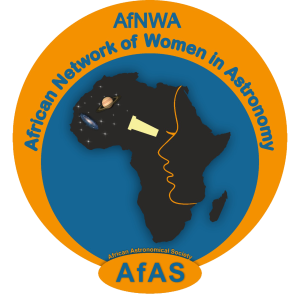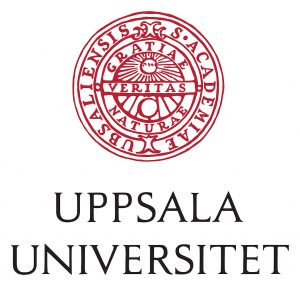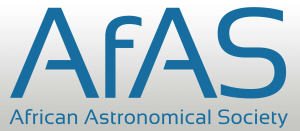


The African Network of Women in Astronomy (AfNWA) is inviting nominations for the 2023 Women in Astronomy in Africa awards. AfNWA is a sub-committee of the African Astronomical Society (AfAS) and is collaborating with the International Science Programme (ISP), Uppsala University, Sweden. The awards aim to recognize and support the scientific achievements and contributions of women in Astronomy in Africa.
Categories
This year, the awards are offered in the following categories:
- Prof. Carolina Ödman-Govender early career astronomer award,
- Senior-level astronomer award.
Both awards include an award certificate to be presented during the next general meeting of AfAS in Morocco (April 2024) and 1500 EUR per award. Both awardees will have the opportunity to make a presentation during the AfAS annual meeting in Marrakech (in-person or online).
Eligibility
To qualify for the award, nominees should:
- Identify as a woman.
- Be working or studying in the field of astronomy on the African continent.
- Submit a nomination at this link before 25 December 2023. Self-nominations are welcome.
- The Prof. Carolina Ödman-Govender early career astronomer award is open to MSc and PhD students and post-doc researchers within five years after their PhD.
- Senior-level astronomer award is available to those who already have a PhD and more than five years of research experience.
Process
- Review panel confirmed and constituted.
- Criteria for awards are decided by the AfNWA Board and the review panel and displayed on the AfNWA website.
- Nominations collected through an online form.
- AfNWA Board follows up to check eligibility of nominations, collate nominations and follow up for any necessary supporting documentation.
- The review panel receives the nominations, along with a scoring sheet based on the eligibility and award criteria.
- All reviewers score independently and return their scoring sheets to AfNWA Board for collating.
- Reviewers hold a virtual meeting to make final decision on both awards.
- AfNWA Board approves outcomes.
- Outcomes are publicised – emailed to individuals and shared on afnwa.org and AfAS websites.
- Awards are officially presented during the AfAS general meeting in April 2024.
Timeline
| 5 Dec. 2023 | Call for nominations opens |
| 25 Dec. 2023 | Call for nominations closes |
| 05 Jan. 2024 | Shortlist agreed |
| 30 Jan. 2024 | Review panel meets to decide on the award |
| 15 Feb. 2024 | Awards announced |
| 15 -20 Apr. 2024 | Prize winners who receive an opportunity to present at the AfAS conference |
Evaluation Criteria
- Prof. Carolina Ödman-Govender early career astronomer award
1) Scientific Achievements
- Publication, quality and quantity given the level of the career, and participation in research projects.
- Membership of scientific societies AND/OR awards, grants or other recognition received.
- Any experience with project coordination given the level of the career.
- Participation in scientific meetings, given talks, etc.
- For MSc students, excellence in grades as judged from an academic transcript.
2) Contributions to Society
- Participation in outreach and education activities.
- Commitment to improving the field (e.g. advocacy for women and girls in science, or more equal practices in peer review, climate change, etc.).
- Public engagement (e.g. speaking, social media, etc.).
- Senior-level astronomer award
1) Scientific Achievements
- Publication, quality and quantity given the level of the career.
- Participation, coordination and leadership of scientific projects
- Leadership in scientific societies, other recognitions.
- Leadership and vision in institutional development
- Patents (if applicable)
- Students mentored and graduated.
- Committee and society membership/service to professional community.
- Participation in scientific meetings, given talks, organised conferences/meetings/training.
- Teaching and lecturing.
2) Contributions to Society
- Outreach and education initiatives.
- Advocacy and empowerment (e.g. advocacy for women in science, or more equal practices in peer review, climate change, etc.).
- Public engagement (e.g. speaking, social media, etc.).
REVIEW PANEL
- Prof. Stephan C. Buchert
- Prof. Catherine Cesarsky
- Prof. Ewine van Dishoeck
- Prof. Debra Elmegreen
- Prof. Ernst van Groningen
- Dr. Edward Jurua
- Prof. Samaya Nissanke
- Prof. Mirjana Povic